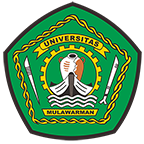ESG: Criteria 2.2

2.2 - Design and approval of programs
The design and approval process for programs in the Master’s in English Education at Mulawarman University adheres to a systematic methodology to guarantee the creation of high-quality, pertinent educational offers. This process involves a thorough analysis of the curriculum, ensuring that it aligns with the needs of the students and the industry. The institution complies with national regulations and worldwide best practices in the creation and approval of its programs, which enables it to maintain its academic standards and credibility. The institution complies with national regulations and worldwide best practices in the creation and approval of its programs.
The development process involves several key phases. The initial phase involves conducting extensive research in the field of English education, identifying the skills required of graduates, and consulting with key stakeholders, including employers, educators, and industry experts. This input informs the development of a program that meets current educational needs and market expectations. The subsequent stage involves establishing the learning outcomes, which are determined based on recognised competencies. The program structure is then established, comprising a comprehensive list of courses and modules that align with the learning outcomes and evaluation requirements. This process requires careful planning to ensure that the program's content is aligned with the desired learning outcomes, which are typically based on industry-recognised competencies. In the following stage, the program's teaching approaches, technical tools, and instructional resources are established to ensure an optimal learning experience. This involves selecting suitable teaching methods, such as lectures, discussions, and hands-on activities, as well as providing necessary technical tools and resources to support student learning. i In the final stage, the program formulation framework is established. This phase involves the formalization of the program's title, objectives, and curriculum. It includes the definition of modules and academic disciplines, the specification of credit requirements, and the clarification of prerequisites and post-requisites. A draft curriculum is developed, ensuring consistency among all elements of the program. The formalization process ensures that all aspects of the program are clearly defined and aligned with the program's objectives, providing a solid foundation for the program's development and implementation.
1. Evaluation of Program Quality
The program undergoes both internal and external quality evaluations. Internal assessments are conducted by departmental and faculty committees, while external evaluations incorporate input from employers, practitioners, and specialists in English teaching. This comprehensive evaluation ensures that the program remains relevant, excellent, and aligned with the demands of the labour market. Authorisation Procedure Mulawarman University endorses the program after completing multiple phases. The review process involves assessment by the Faculty Quality Assurance Committee, the department, and final endorsement by the Academic Council, which consists of deans, department heads, and lecturer representatives.
Industry experts, employers, and practitioners are continually involved in Mulawarman University's design and approval process to ensure the program meets market demands and stays up-to-date with industry trends. Feedback for ongoing improvement is collected through questionnaires, meetings, and seminars. The Master's Program in English Education at Mulawarman University uses a rigorous and collaborative approach to guarantee its curriculum remains relevant and responsive to the needs of the educational sector and its students.
